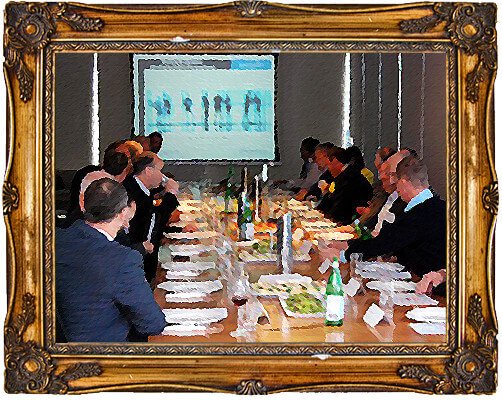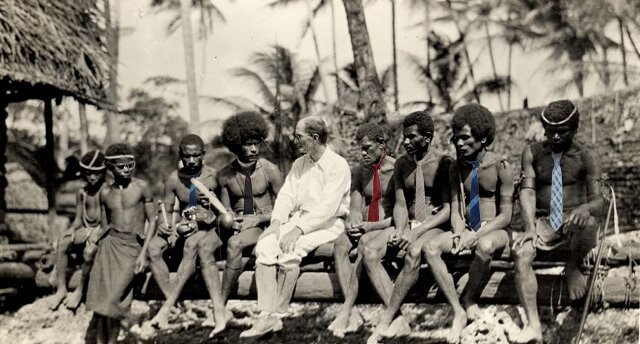Anthropological Voice As An Imperative And The Ethical Issues of Loyalty

For most anthropologists, working in business isn’t just a career choice but an opportunity to utilize the anthropological perspective within a pervasive and powerful arena that affects the lives of a majority of the world’s population in one way or another. However, as one that is also largely driven by profit motives, with disruptive agenda’s and sometimes imperialistic consequences, practicing anthropologists tasked with “identifying stakeholders and documenting their needs, desires, and behaviors” (Ensworth 2013:65) are inevitably confronted with ethical issues.
Many of these issues can be attributed to the ethical dimensions associated with the extent to which practitioners are willing to get on board with the perspectives, motives, and objectives of business. As Hepso puts it, “not only was I obliged to act on behalf of the company, but I was also expected to comply with my company’s ethical and business standards… An inside ethnographer serves business interests first and has, foremost, a business role as employee that cannot be escaped” (2013:159). Maintaining an identity as an anthropologist while adhering to business agendas requires a mindful balancing act, but ethical issues represent real dilemmas between asking critical questions of the work and being loyal to business goals.
Determining both the actions and consequences of decisions when facing ethical issues depends on the various possible positionalities of practicing anthropologists in their relationship with business. In his chapter contribution to The Handbook of Practicing Anthropology in Business, Francoise Brun-Cottan discusses the different ramifications between outside consultants and insider employee-researchers for refusing to conduct a study: “refusing a work assignment may mean losing a lasting institutional job, if not a stable career. The external ethnographer more easily can refuse an assignment and move on to another project, perhaps in a completely different subject domain, without endangering a career” (2013:169).
However, working as an external consultant is not without its own caveat, “as an outsider, distance from the institution originating and funding the research has presented some of the most severe challenges to understanding the nature of the assignments and to attending to ethical issues surrounding what has been discovered through the work and how to represent it” (Brun-Cottan 2013:173). For the consultant-practitioner, foresight might be severely hampered from their limited outside view and they find more often that “understandings gleaned in the course of the fieldwork made it apparent that some observations would be used to the detriment of members of the public” (Brun-Cottan 2013:173). Furthermore, outside practitioners have very little, if any, say on how their research is interpreted and utilized by the business client once they hand over their findings.
Employee researchers face longer-term considerations relative to outside consultant-practitioners, including in regards to sustaining employment, maintaining positive working relationships, and obtaining good references in the future. Tensions can arise in what is studied, what information is disclosed, and how data is framed and utilized. Patricia Ensworth points out that “these pressures also can increase if the ethnographer is part of a team and there is disagreement about what findings to reveal” (2013:61). In both cases, raising ethical, critical, or practical questions to long-established business practices can put working relationships and future career prospects on the line.
The perennial question for practitioners is how to maintain adequate allegiances to business agendas “while remaining grounded in the epistemological and methodological fundamentals that have made anthropology distinctive” (Baba 2014:65). In her chapter, “The Good Anthropologist: Questioning Ethics in the Workplace,” Kathi R. Kitner describes her approach of subtly and incrementally managing the ethical behavior of business as “the anthropological burr under the saddle… constantly nudg[ing] in the right direction, to prick a bit more if the process is running the wrong way, and to offer guidance when necessary or requested” (2014:318).
Giving voice to the voiceless and bringing attention to the implications of business decisions on existing human values and social relations is experienced as a moral obligation for many practitioners. It is a perspective that is also seen as one that is desperately needed in the business domain. As Sunderland and Denny argue, “for anthropologists working in business realms, having their voice heard, having their theories make a difference, and making a contribution – as anthropologists and to the matters at hand – are keenly felt” (2014:20). The objective for the practicing anthropologist is to obtain and maintain a position of influence while remaining grounded in the highest ethical standards for their work. Instead of surrendering to the profit motives and disruptive agendas of business, Denny contends that for practitioners working in business, “the moral obligation to the field of anthropology is no less onerous and no less felt; it just takes place on a complicated, contingent landscape in which footing must be found” (2013:149).
Works Cited
Baba, Marietta L. 2014. “De-Anthropologizing Ethnography: A Historical Perspective on the Commodification of Ethnography as a Business Service.” In Handbook of Anthropology in Business, edited by R. Denny and P. Sunderland, 43-68. New York, London: Routledge.
Brun-Cottan, Francoise. 2013. “Doing Corporate Ethnography as an Outsider (Consultant).” In Advancing Ethnography in Corporate Environments, edited by B. Jordan, 163-174. Walnut Creek, CA: Left Coast Press.
Denny, Rita. 2013. “The Cry of Practicality.” In Advancing Ethnography in Corporate Environments, edited by B. Jordan, 136-50. Walnut Creek, CA: Left Coast Press.
Ensworth, Patricia. 2013. “Ethnography for Systems Development: Renovating the Legacy.” In Advancing Ethnography in Corporate Environments, edited by B. Jordan, 56-75. Walnut Creek, CA: Left Coast Press.
Hepso, Vidar. “Doing Corporate Ethnography as an Insider (Employee).” In Advancing Ethnography in Corporate Environments, edited by B. Jordan, 151-162. Walnut Creek, CA: Left Coast Press.
Kitner, Kathi R. 2014. “The Good Anthropologist: Questioning Ethics in the Workplace.” In Handbook of Anthropology in Business, edited by R. Denny and P. Sunderland, 309-320. New York, London: Routledge.
Sunderland, Patricia and Rita Denny. 2014. “Introduction.” In Handbook of Anthropology in Business, edited by R. Denny and P. Sunderland, 13-32. New York, London: Routledge.
Recommend0 recommendationsPublished in Business Anthropology, Ethics




Responses